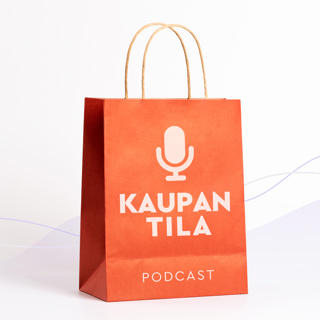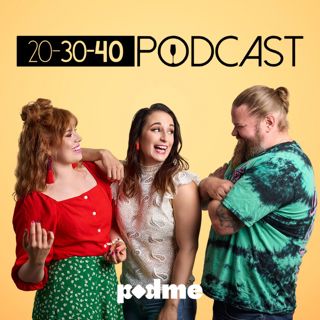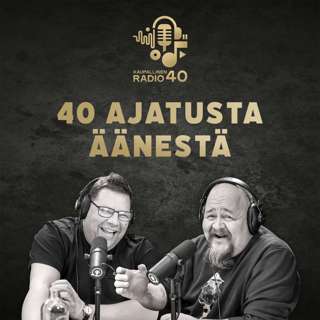
a16z Podcast: On Corporate Venturing & Setting Up 'Innovation Outposts'
Every big technological shift (per Carlota Perez) brings with a structural shift too — an “institutional adjustment” in how companies innovated and build new products, according to Steve Blank and Evangelos Simoudis. Large organizations used to (and continue to) set up remote R&D labs in places like Silicon Valley. But now, those companies are also investing more energy and resources in setting up corporate venturing arms and/or “innovation outposts” in such startup ecosystems — especially as they believe that startup-driven innovation is one of the best ways to keep up with and address disruption in their industries. But… it’s not enough to simply establish a presence in these places; how do you also “sense” and respond to the right opportunities? Are they in the right places? Does beginning with corporate venturing really work for such outposts? And finally, how can these orgs avoid just acting out “innovation theater”? Simoudis — who has also written about whether “the elephant can dance again” using the case of IBM and Watson/ AI — offers his views on how big companies can and should use the Valley (and other innovation clusters) in this episode of the a16z Podcast. Stay Updated:Find a16z on XFind a16z on LinkedInListen to the a16z Show on SpotifyListen to the a16z Show on Apple PodcastsFollow our host: https://twitter.com/eriktorenberg Please note that the content here is for informational purposes only; should NOT be taken as legal, business, tax, or investment advice or be used to evaluate any investment or security; and is not directed at any investors or potential investors in any a16z fund. a16z and its affiliates may maintain investments in the companies discussed. For more details please see a16z.com/disclosures. Hosted by Simplecast, an AdsWizz company. See pcm.adswizz.com for information about our collection and use of personal data for advertising.
11 Touko 201631min

a16z Podcast: Banking on the Blockchain
Whether you think of it as a distributed ledger, decentralized database, computing infrastructure, open source/ software development platform, cryptocurrency, transaction platform, or financial services marketplace, the bitcoin blockchain is driven by two key features: that it is a peer-to-peer network, and that it unbundles trust. Imagine moving from Googling for things to offering proof-as-a-service instead (which itself begins with rethinking identity). In fact, there's a lot of parallels -- both in evolution and development -- with the blockchain and the internet before it. Only the blockchain doesn't need the web. And that has profound implications for what applications and new businesses are now possible, especially in financial services. But if "the worst place to develop a new business model is from within your existing business model", then how can banks move beyond mere process innovations to offering entirely new services built on the blockchain? Many financial institutions are trying to get ahead of the blockchain disruption by exploring it proactively, but how do they overcome the innovator's dilemma and looking at startups like animals in a zoo? In this episode of the a16z Podcast, William Mougayar, the author of the new book The Business Blockchain: Promise, Practice, and Application of the Next Internet Technology shares how traditional, established industries can overcome the innovator's dilemma in this case; what the future of banks might be; and what new applications, services, and startups are possible due to the features -- really, benefits -- of the blockchain. Because the blockchain, ultimately, is an innovation platform. Stay Updated:Find a16z on XFind a16z on LinkedInListen to the a16z Show on SpotifyListen to the a16z Show on Apple PodcastsFollow our host: https://twitter.com/eriktorenberg Please note that the content here is for informational purposes only; should NOT be taken as legal, business, tax, or investment advice or be used to evaluate any investment or security; and is not directed at any investors or potential investors in any a16z fund. a16z and its affiliates may maintain investments in the companies discussed. For more details please see a16z.com/disclosures. Hosted by Simplecast, an AdsWizz company. See pcm.adswizz.com for information about our collection and use of personal data for advertising.
10 Touko 201639min

a16z Podcast: E-commerce, Payments, & More in India's Evolving Retail Landscape
So many modern e-commerce sites and marketplaces are really digital forms of their physical counterparts, which makes it easier to figure out how to present and sell products online. But in India, where many small towns do not have "organized" retail -- and have fewer big (let alone well-known) brands -- mobile and web retail is essentially "leapfrogging" over the physical department store phase to online. So how do these new companies connect people to products when the logistics infrastructure hasn't been built out yet? (Imagine if instead of just partnering with carriers, Amazon had had to build not just its services, but delivery, from scratch in the United States!) Similarly, how do payments happen in an ecosystem that still relies more on cash than more "frictionless" credit cards? And how do you solve problems like discovery; design (different web/app versions depending on connectivity); the balance between notifications/ messaging/ and conversational commerce; and controlling vs. owning inventory and infrastructure? Finally, given the fierce domestic and international competition around e-commerce in India, how do international startups like Snapdeal -- one of the largest online marketplaces in India, and interestingly one taking a full-stack approach -- compete with other players' deep (including foreign) capital and existing expertise? Especially in the context of "regulations"? In this episode of the a16z Podcast, we discuss all this and more with Kunal Bahl and Rohit Bansal, the co-founders of Snapdeal, as well as a16z partner Anu Hariharan. Stay Updated:Find a16z on XFind a16z on LinkedInListen to the a16z Show on SpotifyListen to the a16z Show on Apple PodcastsFollow our host: https://twitter.com/eriktorenberg Please note that the content here is for informational purposes only; should NOT be taken as legal, business, tax, or investment advice or be used to evaluate any investment or security; and is not directed at any investors or potential investors in any a16z fund. a16z and its affiliates may maintain investments in the companies discussed. For more details please see a16z.com/disclosures. Hosted by Simplecast, an AdsWizz company. See pcm.adswizz.com for information about our collection and use of personal data for advertising.
5 Touko 201637min

a16z Podcast: Finally a Tablet that Replaces Your Laptop
When the iPad first came out in 2010 there was chatter that went in two directions: It’s just a big iPhone I’ll never carry a laptop again Both were wrong. The big iPhone comment was quickly dispelled as people (and their kids) fell under the consumption thrall of iPads. But iPads never could meet the needs of most laptop users –- until now. Benedict Evans and Steven Sinofsky offer their reasons why the iPad Pro hits the mark as a machine for all kinds of things, and why it may have shoved their own laptops aside for almost everything. The views expressed here are those of the individual AH Capital Management, L.L.C. (“a16z”) personnel quoted and are not the views of a16z or its affiliates. Certain information contained in here has been obtained from third-party sources, including from portfolio companies of funds managed by a16z. While taken from sources believed to be reliable, a16z has not independently verified such information and makes no representations about the enduring accuracy of the information or its appropriateness for a given situation. This content is provided for informational purposes only, and should not be relied upon as legal, business, investment, or tax advice. You should consult your own advisers as to those matters. References to any securities or digital assets are for illustrative purposes only, and do not constitute an investment recommendation or offer to provide investment advisory services. Furthermore, this content is not directed at nor intended for use by any investors or prospective investors, and may not under any circumstances be relied upon when making a decision to invest in any fund managed by a16z. (An offering to invest in an a16z fund will be made only by the private placement memorandum, subscription agreement, and other relevant documentation of any such fund and should be read in their entirety.) Any investments or portfolio companies mentioned, referred to, or described are not representative of all investments in vehicles managed by a16z, and there can be no assurance that the investments will be profitable or that other investments made in the future will have similar characteristics or results. A list of investments made by funds managed by Andreessen Horowitz (excluding investments and certain publicly traded cryptocurrencies/ digital assets for which the issuer has not provided permission for a16z to disclose publicly) is available at https://a16z.com/investments/. Charts and graphs provided within are for informational purposes solely and should not be relied upon when making any investment decision. Past performance is not indicative of future results. The content speaks only as of the date indicated. Any projections, estimates, forecasts, targets, prospects, and/or opinions expressed in these materials are subject to change without notice and may differ or be contrary to opinions expressed by others. Please see https://a16z.com/disclosures for additional important information. Stay Updated:Find a16z on XFind a16z on LinkedInListen to the a16z Show on SpotifyListen to the a16z Show on Apple PodcastsFollow our host: https://twitter.com/eriktorenberg Please note that the content here is for informational purposes only; should NOT be taken as legal, business, tax, or investment advice or be used to evaluate any investment or security; and is not directed at any investors or potential investors in any a16z fund. a16z and its affiliates may maintain investments in the companies discussed. For more details please see a16z.com/disclosures. Hosted by Simplecast, an AdsWizz company. See pcm.adswizz.com for information about our collection and use of personal data for advertising.
28 Huhti 201627min

a16z Podcast: Connectivity and the Internet as Supply Chain
Our first instinct as technologists or users of technology is to think of 'connectivity' as digital connectivity -- the internet, our smartphone. But the internet is just the latest in a long line of connectivity that spans centuries, not just decades: transportation, energy, communication. The internet, in fact, is the newest kind of supply chain -- a "data supply chain" -- with technology, goods, capital, people (human capital), and ideas moving across it. We're moving towards a world where infrastructure and supply chains (and the friction between them) matter more fundamentally than even geography and political borders. This in turn is reshaping everything, from companies (including "stateless superpowers") to cities ("megacities") to identity. But what does this mean for jobs? Or those who don't have connectivity and mobility? Does this lead to a filter bubble? The evidence suggests otherwise, argues the author of the new book Connectography, Parag Khanna, in this episode of the a16z Podcast. Khanna -- a senior research fellow in the Centre on Asia and Globalisation at theNational University of Singapore's Lee Kuan Yew School of Public Policy and a CNN global contributor -- traveled to Iran, Mongolia, Nigeria, North Korea, Pakistan, Ukraine and many more places to analyze and document the global "connectivity" phenomenon. Despite "millennia of cultivated cultural and linguistic provinces" and practices, this connectivity is reorganizing the world. The views expressed here are those of the individual AH Capital Management, L.L.C. (“a16z”) personnel quoted and are not the views of a16z or its affiliates. Certain information contained in here has been obtained from third-party sources, including from portfolio companies of funds managed by a16z. While taken from sources believed to be reliable, a16z has not independently verified such information and makes no representations about the enduring accuracy of the information or its appropriateness for a given situation. This content is provided for informational purposes only, and should not be relied upon as legal, business, investment, or tax advice. You should consult your own advisers as to those matters. References to any securities or digital assets are for illustrative purposes only, and do not constitute an investment recommendation or offer to provide investment advisory services. Furthermore, this content is not directed at nor intended for use by any investors or prospective investors, and may not under any circumstances be relied upon when making a decision to invest in any fund managed by a16z. (An offering to invest in an a16z fund will be made only by the private placement memorandum, subscription agreement, and other relevant documentation of any such fund and should be read in their entirety.) Any investments or portfolio companies mentioned, referred to, or described are not representative of all investments in vehicles managed by a16z, and there can be no assurance that the investments will be profitable or that other investments made in the future will have similar characteristics or results. A list of investments made by funds managed by Andreessen Horowitz (excluding investments and certain publicly traded cryptocurrencies/ digital assets for which the issuer has not provided permission for a16z to disclose publicly) is available at https://a16z.com/investments/. Charts and graphs provided within are for informational purposes solely and should not be relied upon when making any investment decision. Past performance is not indicative of future results. The content speaks only as of the date indicated. Any projections, estimates, forecasts, targets, prospects, and/or opinions expressed in these materials are subject to change without notice and may differ or be contrary to opinions expressed by others. Please see https://a16z.com/disclosures for additional important information. Stay Updated:Find a16z on XFind a16z on LinkedInListen to the a16z Show on SpotifyListen to the a16z Show on Apple PodcastsFollow our host: https://twitter.com/eriktorenberg Please note that the content here is for informational purposes only; should NOT be taken as legal, business, tax, or investment advice or be used to evaluate any investment or security; and is not directed at any investors or potential investors in any a16z fund. a16z and its affiliates may maintain investments in the companies discussed. For more details please see a16z.com/disclosures. Hosted by Simplecast, an AdsWizz company. See pcm.adswizz.com for information about our collection and use of personal data for advertising.
22 Huhti 201632min

a16z Podcast: Bots and Beyond
So... about those bots. Bots bots bots. Bots! In this episode of the botcast, a16z partners Benedict Evans and Connie Chan -- along with Chris Messina, longtime advocate of the open web and more -- pull apart various threads related to the topic of bots, mobile, and beyond: the (evolution?) from web to apps to messaging to bots; chat as an interface; “conversational commerce”; and so on. They also discuss why framing messaging through the lens of WeChat both reveals useful things (what works/ might not work) and not-so-useful things (such as seeking the “WeChat of the West”). More importantly, how can we keep bots, and what they represent, in perspective -- beyond the fad? Especially when it comes to considering innovation on the 'web' vs. 'mobile' (remember the mobile browser!) and when it comes to removing friction (vs. adding limited interaction). What contexts (like customer service) are most useful for thinking about bots? And how can we even know, given it’s early days yet and we haven’t moved much beyond the command-line interface... Finally, as computing moves outside the classic work-centric paradigm to room- and urban-scale, how do we think about integrating online and offline, ubiquitous and “diffuse” computing through bots? The views expressed here are those of the individual AH Capital Management, L.L.C. (“a16z”) personnel quoted and are not the views of a16z or its affiliates. Certain information contained in here has been obtained from third-party sources, including from portfolio companies of funds managed by a16z. While taken from sources believed to be reliable, a16z has not independently verified such information and makes no representations about the enduring accuracy of the information or its appropriateness for a given situation. This content is provided for informational purposes only, and should not be relied upon as legal, business, investment, or tax advice. You should consult your own advisers as to those matters. References to any securities or digital assets are for illustrative purposes only, and do not constitute an investment recommendation or offer to provide investment advisory services. Furthermore, this content is not directed at nor intended for use by any investors or prospective investors, and may not under any circumstances be relied upon when making a decision to invest in any fund managed by a16z. (An offering to invest in an a16z fund will be made only by the private placement memorandum, subscription agreement, and other relevant documentation of any such fund and should be read in their entirety.) Any investments or portfolio companies mentioned, referred to, or described are not representative of all investments in vehicles managed by a16z, and there can be no assurance that the investments will be profitable or that other investments made in the future will have similar characteristics or results. A list of investments made by funds managed by Andreessen Horowitz (excluding investments and certain publicly traded cryptocurrencies/ digital assets for which the issuer has not provided permission for a16z to disclose publicly) is available at https://a16z.com/investments/. Charts and graphs provided within are for informational purposes solely and should not be relied upon when making any investment decision. Past performance is not indicative of future results. The content speaks only as of the date indicated. Any projections, estimates, forecasts, targets, prospects, and/or opinions expressed in these materials are subject to change without notice and may differ or be contrary to opinions expressed by others. Please see https://a16z.com/disclosures for additional important information. Stay Updated:Find a16z on XFind a16z on LinkedInListen to the a16z Show on SpotifyListen to the a16z Show on Apple PodcastsFollow our host: https://twitter.com/eriktorenberg Please note that the content here is for informational purposes only; should NOT be taken as legal, business, tax, or investment advice or be used to evaluate any investment or security; and is not directed at any investors or potential investors in any a16z fund. a16z and its affiliates may maintain investments in the companies discussed. For more details please see a16z.com/disclosures. Hosted by Simplecast, an AdsWizz company. See pcm.adswizz.com for information about our collection and use of personal data for advertising.
19 Huhti 201648min

a16z Podcast: Selling to Developers & Open Source Business Models
Developers are more than just influencers inside the enterprise -- they're now buyers, too. That's a huge shift from before, when only IT and other departments had that kind of purchasing power. (It's not just a Silicon Valley thing, either, as every company becomes a software company.) So what's different then about selling and marketing to developers? One key is open source. But offering products and services built on top of open source brings up a whole slew of other questions: What are viable business models, how do you monetize? Especially since (as Peter Levine has argued before) there will never be another Red Hat a.k.a. a successful "open core" business model. a16z partners Levine and Martin Casado offer their observations and advice about selling to developers and open source business models in this episode of the podcast. The answers affect everything from sales -- yes, you still need sales even when selling to developers! -- to product management (what features to withhold, who builds them) and go to market plan. The views expressed here are those of the individual AH Capital Management, L.L.C. (“a16z”) personnel quoted and are not the views of a16z or its affiliates. Certain information contained in here has been obtained from third-party sources, including from portfolio companies of funds managed by a16z. While taken from sources believed to be reliable, a16z has not independently verified such information and makes no representations about the enduring accuracy of the information or its appropriateness for a given situation. This content is provided for informational purposes only, and should not be relied upon as legal, business, investment, or tax advice. You should consult your own advisers as to those matters. References to any securities or digital assets are for illustrative purposes only, and do not constitute an investment recommendation or offer to provide investment advisory services. Furthermore, this content is not directed at nor intended for use by any investors or prospective investors, and may not under any circumstances be relied upon when making a decision to invest in any fund managed by a16z. (An offering to invest in an a16z fund will be made only by the private placement memorandum, subscription agreement, and other relevant documentation of any such fund and should be read in their entirety.) Any investments or portfolio companies mentioned, referred to, or described are not representative of all investments in vehicles managed by a16z, and there can be no assurance that the investments will be profitable or that other investments made in the future will have similar characteristics or results. A list of investments made by funds managed by Andreessen Horowitz (excluding investments and certain publicly traded cryptocurrencies/ digital assets for which the issuer has not provided permission for a16z to disclose publicly) is available at https://a16z.com/investments/. Charts and graphs provided within are for informational purposes solely and should not be relied upon when making any investment decision. Past performance is not indicative of future results. The content speaks only as of the date indicated. Any projections, estimates, forecasts, targets, prospects, and/or opinions expressed in these materials are subject to change without notice and may differ or be contrary to opinions expressed by others. Please see https://a16z.com/disclosures for additional important information. Stay Updated:Find a16z on XFind a16z on LinkedInListen to the a16z Show on SpotifyListen to the a16z Show on Apple PodcastsFollow our host: https://twitter.com/eriktorenberg Please note that the content here is for informational purposes only; should NOT be taken as legal, business, tax, or investment advice or be used to evaluate any investment or security; and is not directed at any investors or potential investors in any a16z fund. a16z and its affiliates may maintain investments in the companies discussed. For more details please see a16z.com/disclosures. Hosted by Simplecast, an AdsWizz company. See pcm.adswizz.com for information about our collection and use of personal data for advertising.
14 Huhti 201625min

a16z Podcast: The Why, How, and When of Sales
The hallmark of many great technical founder/CEOs is that they envision a better way of doing things, and that's why they're building a company that delivers on that better way, often disrupting the way things have always been done before. But this very mindset can backfire when it comes to sales. Why shouldn't they reinvent the sales process?? On this episode of the a16z Podcast -- with a16z's Mark Cranney (head of our sales and market development team), Lars Dalgaard, and Ben Horowitz -- we cover the why, how, and when of sales: why do we even need sales when "a really good product sells itself"; how to organize the sales function depending on what you're building (especially when what you're selling is continually changing); and when to bring on that first sales hire. Finally, how do we wrap our heads around sales culture, competition, and commissions in startups? It doesn't help when everyone in the company -- not just sales reps -- are the ones building the very thing you're selling ... so why the special rewards for sales? It isn't fair! Or is it? All this and more in this episode of the pod. The views expressed here are those of the individual AH Capital Management, L.L.C. (“a16z”) personnel quoted and are not the views of a16z or its affiliates. Certain information contained in here has been obtained from third-party sources, including from portfolio companies of funds managed by a16z. While taken from sources believed to be reliable, a16z has not independently verified such information and makes no representations about the enduring accuracy of the information or its appropriateness for a given situation. This content is provided for informational purposes only, and should not be relied upon as legal, business, investment, or tax advice. You should consult your own advisers as to those matters. References to any securities or digital assets are for illustrative purposes only, and do not constitute an investment recommendation or offer to provide investment advisory services. Furthermore, this content is not directed at nor intended for use by any investors or prospective investors, and may not under any circumstances be relied upon when making a decision to invest in any fund managed by a16z. (An offering to invest in an a16z fund will be made only by the private placement memorandum, subscription agreement, and other relevant documentation of any such fund and should be read in their entirety.) Any investments or portfolio companies mentioned, referred to, or described are not representative of all investments in vehicles managed by a16z, and there can be no assurance that the investments will be profitable or that other investments made in the future will have similar characteristics or results. A list of investments made by funds managed by Andreessen Horowitz (excluding investments and certain publicly traded cryptocurrencies/ digital assets for which the issuer has not provided permission for a16z to disclose publicly) is available at https://a16z.com/investments/. Charts and graphs provided within are for informational purposes solely and should not be relied upon when making any investment decision. Past performance is not indicative of future results. The content speaks only as of the date indicated. Any projections, estimates, forecasts, targets, prospects, and/or opinions expressed in these materials are subject to change without notice and may differ or be contrary to opinions expressed by others. Please see https://a16z.com/disclosures for additional important information. Stay Updated:Find a16z on XFind a16z on LinkedInListen to the a16z Show on SpotifyListen to the a16z Show on Apple PodcastsFollow our host: https://twitter.com/eriktorenberg Please note that the content here is for informational purposes only; should NOT be taken as legal, business, tax, or investment advice or be used to evaluate any investment or security; and is not directed at any investors or potential investors in any a16z fund. a16z and its affiliates may maintain investments in the companies discussed. For more details please see a16z.com/disclosures. Hosted by Simplecast, an AdsWizz company. See pcm.adswizz.com for information about our collection and use of personal data for advertising.
8 Huhti 201640min






















